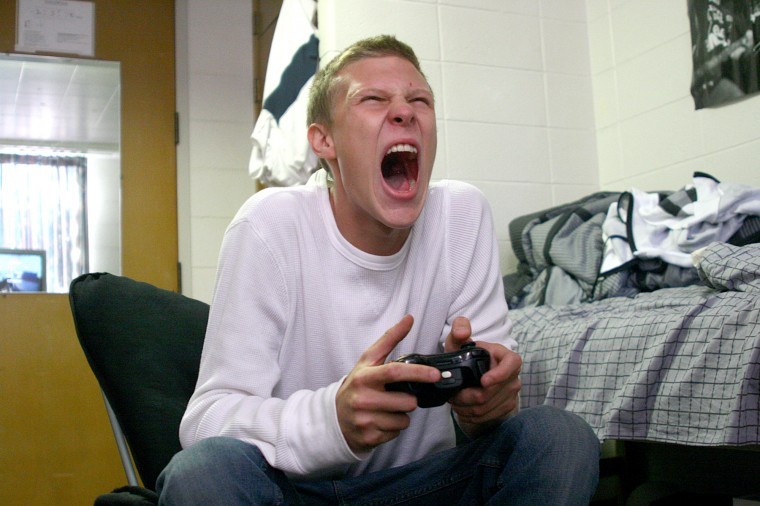Study indicates violent video games have real-life adverse effects
Northern Star Photo Illustration | A recent study by the University of Missouri finds that gamers have a reduced response to violence and a predicted increase in agression after playing.
September 7, 2011
When you’re playing a violent video game, you are aware of what your eyes and hands are doing, but your brain is a mystery.
A recent University of Missouri study on college students found out what’s going on in gamers’ brains when they play violent games – a reduced response to violence and a predicted increase in aggression after playing.
“Violent video game exposure can cause desensitization, which can lead people to becoming less likely to help a person in need and more likely to behave aggressively,” said Bruce Bartholow, a University of Missouri researcher and associate professor of psychology.
Amy Luckner, assistant professor of psychology at NIU, said that this study demonstrates how playing violent video games can increase aggressive thoughts, feelings and behaviors while decreasing pro-social and helping behaviors like empathy.
Anthony Alonso, junior sociology major, said he plays violent video games twice a week.
“For me, it’s a way to release aggression during that time and during that time only,” he said.
Luckner acknowledges that other factors, including duration of play and game content, context, structure and mechanics influence how each player responds.
“It’s important to avoid having a black and white perspective that video games are either good or bad,” Luckner said.
Video game play can improve hand-eye coordination, perceptual skills and navigation skills and can even have a positive impact for certain professions like surgeons, who look at two-dimensional screens in a three-dimensional environment, Luckner said.
Bartholow said one of the problems with violent video games is that they award players with more points, lives, weapons, armor, etc., for engaging in aggressive behavior.
“The big controversy is whether or not what happens in the context of the game translates to the outside world,” Bartholow said.
Luckner said that the behavior itself may not be identical to what the player experienced during the game because there is a “logical separation of gaming from reality.”
“There are these subtle changes we may not realize that could impact our behavior and how we view things,” Luckner said.
Anthropology graduate student Julien Ehrenkonig completed a year-long study on perpetuating cultural stereotypes in video games.
“Sometimes a person can take on the personality of their avatar,” he said.
Luckner said it is important for players to realize how the video game’s content affects them.
“In the same way you should eat food in moderation, you should consume media in moderation,” Luckner said.







